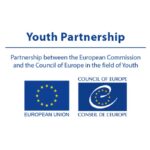Study: Shrinking democratic civic space for youth
Year of production: 2021
Photo by Ehimetalor Akhere Unuabona on Unsplash
The mapping study explores the change in civil society and the issues discussed under the concept of “shrinking civil society”. Among its main findings it reveals that young people and organisations representing their interests find it increasingly hard to practice civic agency and thus become agents of social change.
The civic space is defined in a broad manner in order to include early learning and various aspects of youth work because the definitions, aspirations, and acceptable expressions of the democratic process are determined through cultural and social processes.
Take a look and explore issues such as: civic space and its role in safeguarding democracy; trends of shrinking civic space; the relevance of changes in youth work to shrinking civic space for young people.





